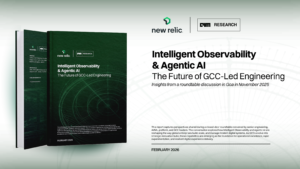What began as a vision to enhance the architectural process through cutting-edge technology has taken a significant step forward with Pantheon AI’s recent announcement of a $25 million funding round, led by Andreessen Horowitz. This funding marks the startup’s exit from stealth mode and positions it as a formidable player in the proptech space.
Founded in 2023, Pantheon AI emerged from the shared recognition among its co-founders—David Mace, Tiger Sun, and Georgios Kontominas—that the architectural process was ripe for innovation. With backgrounds in AI from renowned institutions like Stanford AI Lab, Facebook, Caltech, and IBM Watson, the founders set out to leverage artificial intelligence to address the repetitive tasks that traditionally burden architects. Mace articulated this goal, stating, “We were all excited that there is a lot of repetitive work that goes into the architecture process. We thought that it would benefit architects and their customers to have far faster iteration cycles enabled by AI, so that architects could focus on the higher-level creative work.”
Pantheon AI began its journey by focusing on office buildings but is now poised to expand its services to multifamily, hospitality, and other building types. The firm has developed proprietary technology that generates editable 3D models, capturing the architectural details of a building—walls, room elements like cabinets, and compliance with building codes—while allowing for rapid iterations. “We actually are starting with doing mostly one to three floors for existing buildings, and we are just starting to move into doing new buildings, especially in multifamily,” Mace explained. This technology not only enhances speed but also allows architects to focus on higher-level creative work, ensuring that the design process remains robust and aesthetically pleasing.
A key differentiator for Pantheon AI lies in its business model. Rather than selling software licenses to architects, the startup sells its services directly to property developers and owners. Mace noted, “Pantheon’s technology enables it to provide an extremely differentiated level of service to property developers and owners versus the status quo,” which aligns the company’s incentives with where developers derive value. This strategic focus positions Pantheon to disrupt traditional architectural practices.
The technology underpinning Pantheon AI’s offerings is both complex and sophisticated, requiring significant engineering expertise to execute at scale. Mace remarked, “The technology we built out is extraordinarily hard technology to build. It took us essentially a year to get it to this point. I think we wouldn’t have been able to do that without our background.” The startup has already begun assembling a skilled team, hiring top engineers and architects from prestigious firms such as Gensler, SOM, and KPF, further enhancing its capabilities.
Pantheon AI’s team is composed of highly skilled individuals who have excelled in both technology and architecture. Mace, a second-time founder, previously sold his first company, SwiftScale Biologics, to Resilience Bio. Tiger Sun is known for his technical prowess at Scale, while Kontominas brings his architectural expertise to the forefront. Mace expressed confidence in their collective abilities: “I’ve personally known both David and Tiger for years now; they are both incredibly technical, driven, and passionate about solving problems for customers in the physical world.”
The company intends to use the funds to expand commercialization into multiple different U.S. geographies. “With this funding, we are laser-focused on expanding commercialization, meaning working with more and more property developers, owners, and tenants,” Mace emphasized. “We will be expanding into multiple different [U.S.] geographies as we do that.”
In terms of project scope, Pantheon AI’s initial focus was primarily on office buildings, but they are now broadening their horizons. “We started by focusing on office buildings, and we are now expanding to multifamily, hospitality, and other building types,” Mace noted. As the company grows, its vision includes evolving into a software as a service (SaaS) provider.
Faster iteration cycles can significantly reduce project costs. Pantheon AI integrates estimated material costs for both commoditized and vendor-specific materials, allowing for real-time cost estimates throughout the iteration process. This transparency not only benefits clients but also minimizes unexpected expenses. “The transparency helps clients and also reduces unexpected events,” Mace stated. “The company claims that such instant visibility enables it to optimize designs to help meet cost goals.”
Looking ahead, the co-founders envision a future where iteration cycles are reduced to real-time, allowing architects and property developers to collaborate dynamically. Mace elaborated, “We’re hoping to basically get those iteration cycles down to real time, such that an architect and a property developer can sit down live and make major changes to the architecture for a space.”
As Pantheon AI continues to grow—currently boasting a team of 11 full-time employees—its commitment to transforming the architectural landscape through AI remains steadfast. The company aims to bring unprecedented speed, efficiency, and creative freedom to the industry, proving that the future of building design can be as dynamic as the structures themselves.





